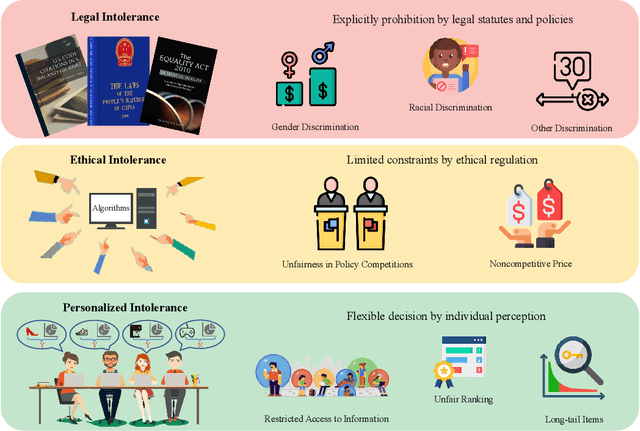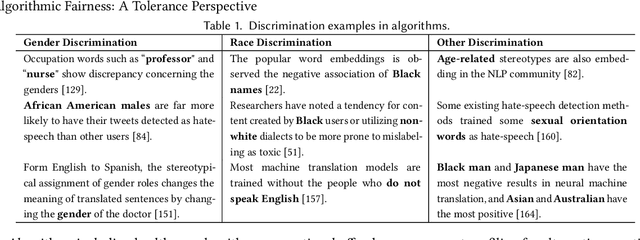Algorithmic Fairness: A Tolerance Perspective
Paper and Code
Apr 26, 2024



Recent advancements in machine learning and deep learning have brought algorithmic fairness into sharp focus, illuminating concerns over discriminatory decision making that negatively impacts certain individuals or groups. These concerns have manifested in legal, ethical, and societal challenges, including the erosion of trust in intelligent systems. In response, this survey delves into the existing literature on algorithmic fairness, specifically highlighting its multifaceted social consequences. We introduce a novel taxonomy based on 'tolerance', a term we define as the degree to which variations in fairness outcomes are acceptable, providing a structured approach to understanding the subtleties of fairness within algorithmic decisions. Our systematic review covers diverse industries, revealing critical insights into the balance between algorithmic decision making and social equity. By synthesizing these insights, we outline a series of emerging challenges and propose strategic directions for future research and policy making, with the goal of advancing the field towards more equitable algorithmic systems.
 Add to Chrome
Add to Chrome Add to Firefox
Add to Firefox Add to Edge
Add to Edge